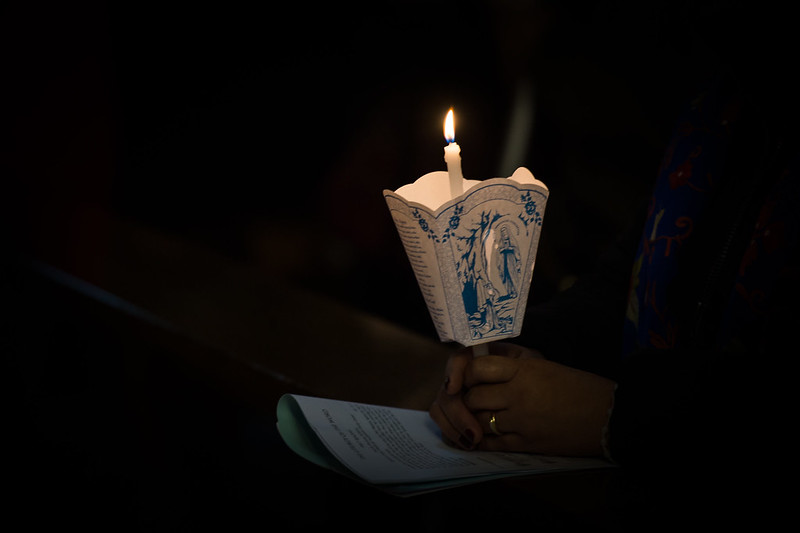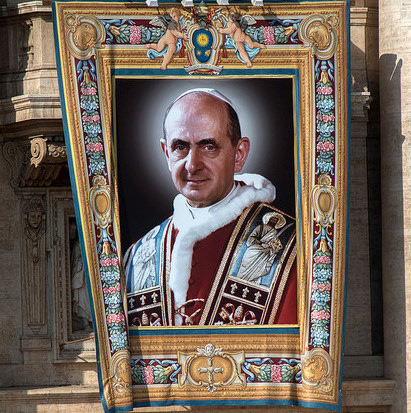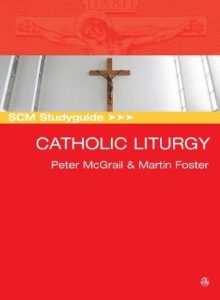For a number of years the Bishops of England and Wales have been considering the publication of a new edition of the Lectionary to replace that originally published in the year 1969 and second edition in 1981. After consultation with a number of English speaking Conferences of Bishops, the Bishops of England and Wales studied the translation of the Catholic Edition of the English Standard Version of the Bible produced by the Catholic Bishops Conference of India. From this text they have produced for the Church in India a Lectionary which has received ‘confirmatio’ by the Holy See.
The English Standard Version: Catholic Edition is seen as fulfilling the qualities the Church seeks when considering a translation of scripture namely:
- The evaluation and use of source material;
- Accuracy of translation which conveys the meaning of the biblical authors;
- Dignity and accessibility of language needed for a worthy proclamation of the Word of God.
The Bishops of England and Wales agreed in November 2018 that this text should be the basis for the new edition of the Lectionary to be used in their territory.
Significant elements of the Lectionary are contained in the psalms which are used in response to the readings. Noticeable work has recently been concluded on the revision of the Grail Psalms. This revision sought to reflect developments in the understanding of the texts, avoiding paraphrase whilst maintaining the poetry and rhythm of the psalter. The text was finalised last year and published by the US Conference of Catholic Bishops under the title of Abbey Psalms and Canticles. This volume will form not just the text for the psalms and canticles in the Lectionary but also future liturgical books, such as the Liturgy of the Hours.
Since the beginning of 2020, the Department of Christian Life and Worship of the Bishops Conference of England and Wales has been preparing the text of the new Lectionary using the English Standard Version: Catholic Edition, together with the Abbey Psalms and Canticles. As the work has progressed, the bishops have received completed sections every two weeks for their review and comment. The first of these were the texts for Sundays and Solemnities of Advent and Christmas.
The Bishops’ Conference of Scotland announced in July 2020 that they had also chosen the English Standard Version: Catholic Edition for the Lectionary. Since then, they have made an invaluable contribution to the comments and review of the text and enhanced the work of the Editorial Committee.
The Bishops of England and Wales received the first completed volume of the Lectionary at their Plenary meeting in November 2020. This volume consists of Sundays, Solemnities and Feasts of the Lord. Many bishops have spoken of their gratitude for the work undertaken in producing the translation. Work is continuing on the second volume and the text of the Weekdays in Ordinary Time will be presented to the bishops at their Spring Plenary meeting in April 2021.
Archbishop George Stack, Chair of the Department of Christian Life and Worship, said “The work of a new Edition of the Lectionary will be a gift to the Church in England and Wales. It will deepen the understanding and love of the scriptures by the People of God. In the words of Pope Emeritus Benedict XVI it is indispensable that the word of God ‘be ever more fully understood at the heart of every ecclesial activity’.” (Post Synodal Apostolic Exhortation Verbum Domini)
The Sunday of the Word of God
Third Sunday in Ordinary Time
24 January 2021
Lectionary FAQs
What is a Catholic edition of the Bible?
There are a number of characteristics of a Catholic edition:
- It includes the deuterocanonical books. These are texts in the Old Testament where there is an ancient Greek Jewish source but not a Hebrew one. These include Tobit, Wisdom, Sirach and Baruch. They have always been accepted by the Catholic Church as part of the Canon of Scripture.
- The translation reflects Catholic understanding of scripture.
- The translation has received an imprimatur from a Bishops’ Conference.
- There should be study notes to assist the reader.
What is the English Standard Version: Catholic Edition?
The English Standard Version is the latest in a series of English translations which go back to the 16th Century. These translations have all been based on a ‘word for word’ principle. The ESV is directly based on the Revised Standard Version and it is suggested that c. 6% of the text has been revised. Changes were made to modernise the language and reflect the latest scholarship. The publisher Crossway emphasises ‘word-for-word’ accuracy, literary excellence and depth of meaning.
Work on the Catholic Edition was done by the Catholic Bishops’ Conference of India in collaboration with Crossway.
What is the Abbey Psalms and Canticles?
The Grail Psalms have been part of Liturgy in English since before the Second Vatican Council. They are used in both the Lectionary and the Divine Office.
In 2008 a revision of the text was undertaken by the monks of Conception Abbey, Missouri. It sought to bring the latest scholarly understanding of the text and to review the text where the English was essentially a paraphrase of the Hebrew. This text was approved by the United States Conference of Catholic Bishops (USCCB) in 2010. A further revision in the light of use was prepared and approved both by USCCB and CBCEW, and has received the confirmatio of the Holy See. This text is now owned by USCCB who have renamed it Abbey Psalms and Canticles both in recognition of the work of Conception Abbey and also so that there was clarity about the edition being used. This text will be used in the Lectionary and in subsequent liturgical books, such as the Liturgy of the Hours.
How is the Lectionary being prepared?
The Lectionary is a liturgical book. Its basis, therefore, is a Latin editio typica which provides the common text used by the whole Church. Unlike other liturgical books where there is a text to be translated the Ordo Lectionum Missae(OLM) is a collection of references and texts . For each reading there is a scripture reference, the heading and the incipit (how the reading begins) in Latin, for the psalms the reference for the verses and the text of the response, similarly for the Gospel Acclamation. All of these texts in Latin are to be translated, though usually they are drawn from the scriptural text.
The initial task is therefore to compile, edit and lay out the readings etc. with reference to OLM drawing the readings from the ESV and the psalms from the APC. This editorial work will throw up some issues of translation or meaning. For example, in a few cases the verse where the reading begins makes sense in the Vulgate (the Latin version of the Bible which is OLM’s reference point) but not in the ESV – perhaps it is mid-sentence and so part of the preceding verse might be added. These editorial issues are reviewed by the Editorial Committee, appointed by the Department for Christian Life and Worship.
The whole text has been divided into about 25 sections and a section is sent out to bishops for review and comment every two weeks. The first to be sent out, in Spring 2020, was Sundays and Solemnities of Advent and Christmas. The comments received are reviewed by the Editorial Committee.
Once a group of sections has been completed it is compiled into a single text. The first was Sundays, Solemnities and Feasts of the Lord. It was reviewed at the November 2020 Plenary of the Bishops’ Conference and received an initial vote. The second will be Weekdays which will be presented at the Spring 2020 Plenary.
Are there changes to the readings?
This is a new publication of the Lectionary using different scripture translations — the content remains the same.
What is new?
There will be provision for Saints who have been inserted into the Universal Calendar since the last Lectionary was published in 1981. There will also be the readings for the National Calendars. In addition, some of the revised liturgical rites, such as Marriage, have additional readings.
Will the text be mandatory?
It is normal practice in the Roman Rite that there is only a single edition of a liturgical text in use in a particular territory. So in the same way as only the third edition of the Roman Missal (2010) may be used in the celebration of Mass (in the Ordinary Form), the same will be true for the Lectionary.
Who will be publishing the Lectionary?
The Catholic Truth Society have been appointed publishers for the Lectionary. They are working closely with the bishops to ensure that the published volumes are worthy, clear in page layout, sturdy and reflect the daily needs of the liturgy.
When will the Lectionary published?
It is expected that the bishops will complete their approval process in Autumn 2021. The text will then need to be reviewed by the Holy See and others. The earliest date for publication would therefore be in 2022. It will be important that People’s Missals and other ancillary material are available at the time of publication.
How many volumes?
The current Lectionary (1981) is in 3 volumes. One significant change in the layout is that all the readings will be given in sense lines as an assistance to the reader. This is recommended in the Introduction to the Lectionary and is common to most recent publications of the Lectionary. The effect is that readings do require more space and this means more pages. It has not yet been decided how many volumes will be published. It is recognised that they need to be manageable and not too large, the contents to be clear and to avoid too much repetition of texts.
Is there a revision of the Liturgy of the Hours as well?
The International Commission on English in the Liturgy (ICEL) is responsible for translating the Latin liturgical texts for the English-speaking Bishops’ Conferences. It was approached by USCCB to assist in a new translation of the Liturgy of the Hours. Broadly this work can be divided into 3 areas: Psalms and Canticles; Scripture and scripture-based texts; other texts. The Abbey Psalms and Canticles will provide the first area. Other texts are being translated by ICEL — these include the hymns, many of which have not been available before, and the intercessions. The USCCB is using their own scripture version as the basis of readings and texts. As this version is not shared by other Conferences it is likely that an alternative will be considered. This vast project has been in progress for a number of years with the Bishops of England and Wales receiving, commenting and voting on the material which has been prepared by ICEL. There is not currently an estimated date for publication.





